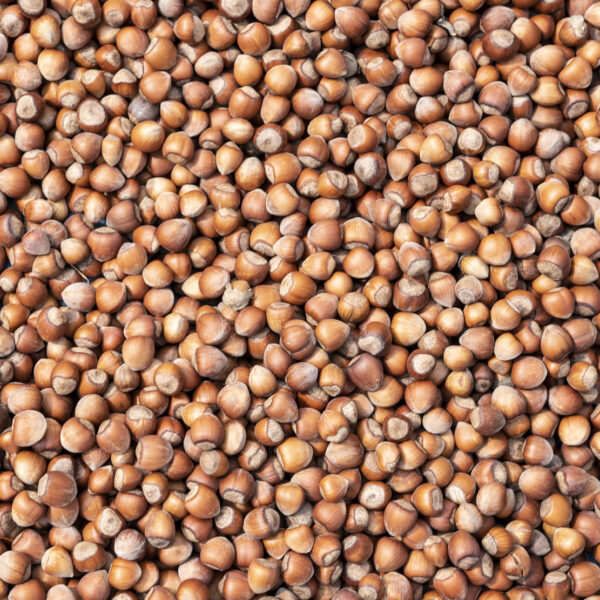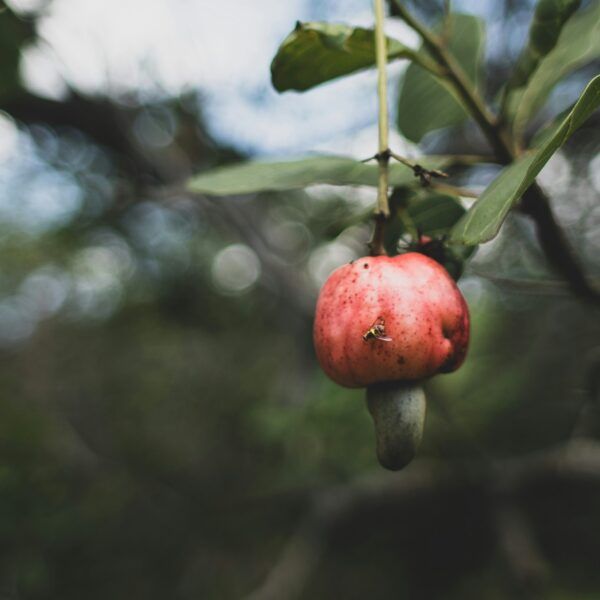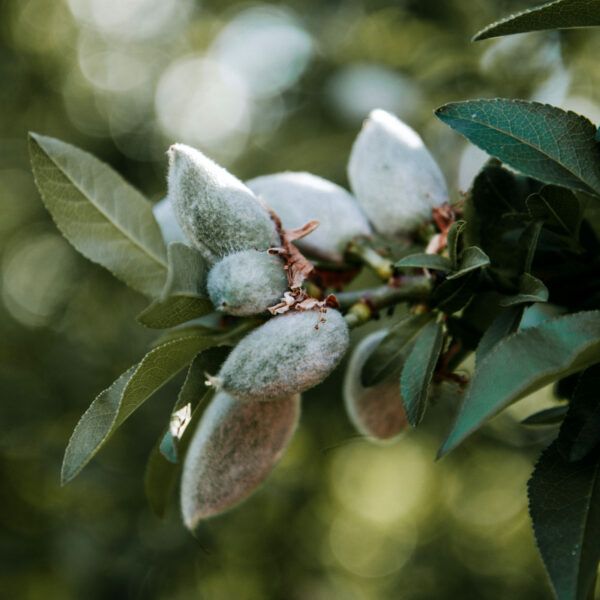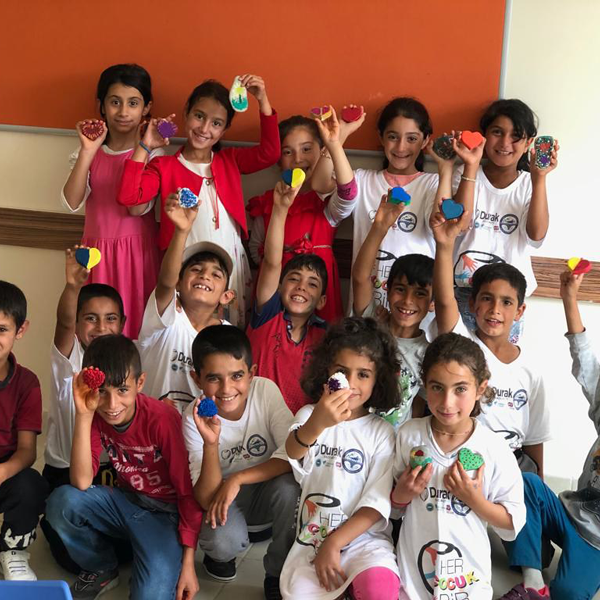Addressing Child Labor on Hazelnut Farms in Türkiye
Child labor is widespread on Turkish hazelnut farms. Discover our collaborative approach to help farmers address child labor on the ground.
People are catching on to the fact that nuts are more than a delicious snack: they can also lower your risk of heart disease, support a healthy immune system, and are packed with protein, antioxidants, and vitamins.
As the demand for nuts grows worldwide, the sector faces a range of challenges—from climate change threatening crops to poor working conditions for farmers. At the Rainforest Alliance, we work with farmers and companies to improve economic, social, and environmental sustainability across the global nut sector.
On this page, you will find information about the Rainforest Alliance’s work in the nut sector and links to all nut-related content and resources.

Rainforest Alliance certification has grown to include several varieties of nuts. In Türkiye—which grows more than 70 percent of the world’s hazelnuts—we have established a robust hazelnut program over the last ten years. In Africa and Southeast Asia, we have begun certifying farmers and companies across the cashew sector. Additionally, we are working with macadamia farmers in Southern Africa and almond farmers in California. Over the coming years, we look forward to building partnerships with farmers, traders and companies, as well as communities and civil society, to grow our impact across the nuts sector.
More than 70 percent of the world’s hazelnuts are grown in Türkiye’s Black Sea coast. Up in the region’s rugged hills, farming is heavily reliant on seasonal hired labor from southeastern Türkiye where there are fewer economic opportunities. Since 2013, we have been working with farmers, traders, companies, and retailers to develop the sector, improve the productivity and quality of crops, address the risk of child labor, and help farmers adapt to a changing climate.
The Rainforest Alliance is working with nut traders to certify cashew farmers across West Africa and beyond. Through our certification program, farmers are embracing sustainable and regenerative farming practices to conserve forests and eliminate deforestation, reduce pesticide use, and develop better management practices. We are also improving traceability from farm to brand, educating communities about pest management and land clearance, and working to stop child labor, harassment, and discrimination. Through long-term partnerships with traders, Rainforest Alliance Certified farmers are receiving a better deal for their crops.
California produces an astonishing 90 percent of the world’s almonds. Across the state’s expansive orchards, farmers are updating their practices to become Rainforest Alliance Certified. Guided by our Sustainable Agriculture Standard, these ranches are improving their water use, waste treatment, and agrochemical use procedures. They are strengthening their risk assessment of health and safety protocols and creating best practice systems to assess and address forced labor and discrimination violations, including by introducing grievance mechanisms. Almond ranches are also adopting a climate-resilient and regenerative approach to conserve their natural ecosystems.

Child labor is widespread on Turkish hazelnut farms. Discover our collaborative approach to help farmers address child labor on the ground.

The Rainforest Alliance is working to make cashew farming more sustainable by addressing challenges like deforestation, poor working conditions, and low farmer incomes through certification, sustainable practices, traceability, and supply chain improvements.

We are helping almond ranches in California level up their growing practices to drive greater sustainbility and get them on a path toward regenerative farming. Find out how in this article.

In the rugged hills of Turkey's Black Sea coast, hazelnut production is still mostly manual and heavily reliant on seasonal hired labor.

Understanding complex linkages between social and ecological systems and their resilience to external shocks is essential to promote the sustainable management of natural resources. This project, funded by the Rainforest Alliance’s Kleinhans Fellowship and directed by a graduate student researcher at the University of Florida, explored the resilience of Brazil nut (Bertholletia excelsa) production to […]